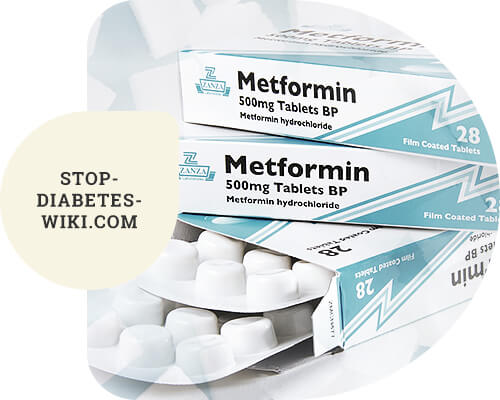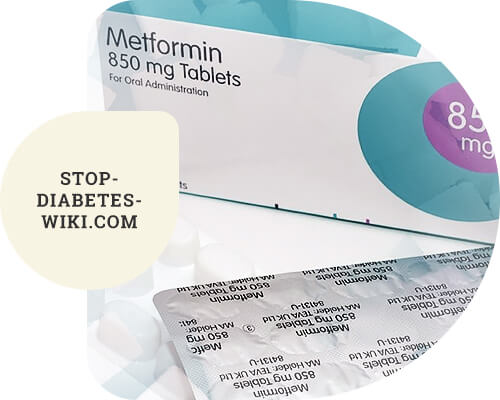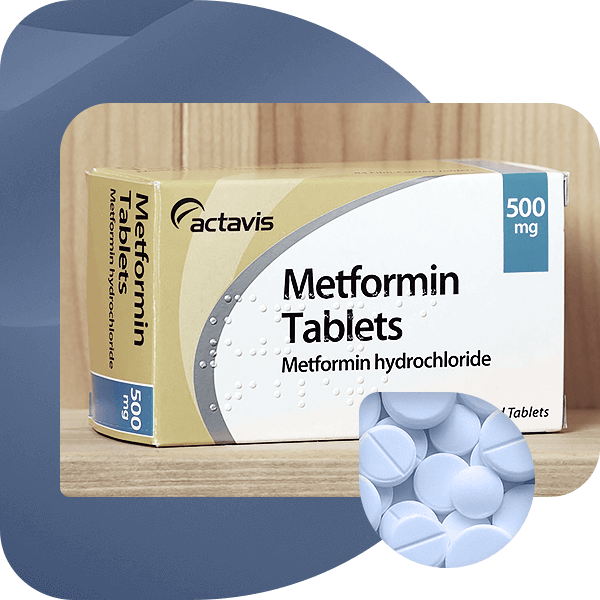Metformin and Weight Loss: Evidence-based Insights and Recommendations
Unveiling Metformin: Beyond Diabetes Management
Metformin, a biguanide class drug, has been a stalwart in the management of type 2 diabetes for decades, celebrated for its efficacy in lowering blood glucose levels. However, the spectrum of metformin’s utility extends far beyond the confines of glucose regulation, intriguing the scientific community with its potential benefits in weight management. Originally approved for medical use in the United States in 1995, metformin has since been the subject of extensive research to understand its multifaceted mechanisms of action, including its impact on reducing insulin resistance and possibly altering the metabolism of lipids and glucose in the liver.

The science behind metformin’s role in weight loss is complex and underpins its ability to influence body weight indirectly through improved insulin sensitivity. This, in turn, can lead to reduced hunger and lower caloric intake. Furthermore, metformin has been observed to modulate the gut microbiota, leading to an altered gut-brain axis and a potential decrease in appetite. These mechanistic insights suggest a promising nexus between metformin and weight management, particularly for individuals with type 2 diabetes, where obesity often coexists as a critical component of the metabolic syndrome.
| Aspect | Details |
|---|---|
| Primary Use | Diabetes Management |
| Extended Use | Weight Management |
| Mechanism | Improves insulin sensitivity, alters gut microbiota |
| Approval Year (USA) | 1995 |
Given the rising prevalence of obesity worldwide, the exploration of metformin for weight loss has gained momentum. It symbolizes a paradigm shift in the management of obesity, particularly in individuals with glucose intolerance. Despite its potential, the application of metformin in weight management necessitates a nuanced understanding of its pharmacological actions to maximize benefits while minimizing adverse effects. As ongoing research unveils the complexities of metformin’s effects on weight, it becomes paramount to integrate these insights with clinical practices, providing a beacon of hope for those grappling with the dual challenges of diabetes and obesity.
The Science Behind Metformin and Weight Loss
Metformin, primarily known for its role in managing type 2 diabetes by improving insulin sensitivity and reducing glucose production in the liver, has also garnered attention for its potential effects on weight management. Its exact mechanism in aiding weight loss, however, involves a complex interplay of factors beyond its glucose-lowering effects. Research suggests that metformin may influence weight by altering appetite, which could lead to a reduction in caloric intake. This is thought to occur through metformin's action on the hypothalamus, the brain region responsible for hunger regulation, although the precise pathways remain under investigation.
Furthermore, metformin has been observed to modulate the gut microbiome, promoting changes that could affect metabolism and body weight. The diversity and composition of the gut microbiota are pivotal in energy homeostasis, and metformin-induced alterations might help in enhancing metabolic efficiency and possibly fostering an environment conducive to weight loss. These findings open new avenues for understanding how metformin can impact weight, providing a foundation for its potential utilization beyond diabetes control.
The scientific investigation into metformin's role in weight loss also touches upon its effects on fat oxidation and accumulation. Studies indicate that metformin may enhance the rate of fatty acid oxidation, reduce lipogenesis (fat storage), and decrease absorption of fats from the diet. These actions collectively might contribute to a negative energy balance and subsequent weight loss, offering a plausible explanation for the weight-reducing benefits observed in some individuals consuming metformin.

In the realm of scientific inquiry, the efficacy of metformin for weight management is supported by a growing body of evidence. Clinical trials and population studies have begun to illuminate the mechanisms through which metformin exerts its weight-modulating effects, although outcomes can vary significantly among individuals. This variability underscores the need for further research to unravel the intricacies of metformin's action, optimize its use for weight control, and identify those who would benefit most. Through meticulous studies and evidence-based insights, the role of metformin in weight management continues to evolve, offering hope for new strategies in combating obesity and metabolic disorders.
Analyzing the Evidence: Does Metformin Promote Weight Loss?
In exploring the impact of metformin on weight loss, the scientific literature presents a compelling yet nuanced narrative. A systematic review of randomized controlled trials, the gold standard in clinical evidence, reveals that metformin does indeed lead to modest reductions in body weight in individuals with type 2 diabetes when compared to placebo or no intervention. These findings are significant, considering that weight management is a critical component of diabetes care, underscoring metformin's dual role in both glycemic control and weight regulation. However, the extent of weight loss varies across studies, suggesting that individual factors such as baseline body mass index, diet, and lifestyle may mediate the effectiveness of metformin in this context.
Moreover, research extends beyond the diabetic population, examining metformin's potential for weight loss in individuals without diabetes. Some evidence indicates that metformin can facilitate weight loss in overweight or obese individuals without diabetes, potentially offering a therapeutic leverage point for tackling obesity—a major public health challenge. Yet, it's essential to approach these findings with caution, as the weight loss observed in non-diabetic individuals is generally modest and may not be clinically significant for all patients. This highlights the importance of personalized medicine in leveraging metformin for weight management, necessitating a tailored approach that considers each individual's unique health profile and weight loss goals.
Furthermore, it is critical to juxtapose the benefits of metformin-induced weight loss against possible side effects and the need for adherence to a comprehensive lifestyle intervention. The integration of metformin therapy with dietary modifications and physical activity remains paramount, as pharmacotherapy alone is seldom sufficient to achieve sustained weight loss. Collectively, these insights elucidate the complex interplay between metformin and weight management, advocating for a balanced perspective that aligns pharmacological interventions with holistic lifestyle strategies to optimize health outcomes.
Potential Mechanisms: How Metformin Affects Body Weight
Metformin, a medication traditionally used in the management of type 2 diabetes, has garnered attention for its potential effects on body weight. Its mechanism of action in this regard is multifaceted, influencing various physiological pathways. Primarily, metformin enhances insulin sensitivity, which encourages the body's cells to use glucose more effectively, reducing insulin levels, and potentially leading to decreased fat storage. Moreover, metformin has been shown to suppress appetite, which could directly influence caloric intake and consequently impact weight loss efforts.

Investigations into the cellular activities induced by metformin reveal its role in modulating the activity of adenosine monophosphate-activated protein kinase (AMPK), a critical enzyme in cellular energy homeostasis. Activation of AMPK by metformin leads to a series of metabolic adjustments conducive to weight loss, including the inhibition of gluconeogenesis – the production of glucose from non-carbohydrate sources in the liver. This process not only reduces hepatic glucose output but also may diminish fat deposition in the liver, contributing to weight management.
Additionally, metformin has been linked to alterations in the gut microbiome, which plays a significant role in metabolic processes, including energy extraction from food and inflammation regulation. Changes in gut bacteria composition could contribute to improved metabolic outcomes and support weight management. This aspect opens a new frontier in understanding how metformin can influence weight beyond its direct effects on insulin sensitivity and glucose metabolism.
Given these mechanisms, it's clear that metformin's influence on weight is the result of a complex interplay between enhancing insulin efficiency, reducing glucose production, modulating appetite, and possibly altering the gut microbiota landscape. These findings offer a promising outlook for integrating metformin into weight management strategies, particularly for individuals grappling with metabolic conditions wherein insulin resistance is a pivotal concern. However, it's essential to approach its use under professional guidance, considering the medication's primary role in diabetes management and its potential side effects.
Real-life Success Stories: Metformin and Weight Management
Among the landscapes of medical research, anecdotal evidence and clinical case studies have painted a compelling picture of metformin not just as a cornerstone in diabetes management but also as a potential ally in weight management. Individuals with and without diabetes have reported meaningful weight reduction upon the administration of metformin, underpinned by its ability to improve insulin sensitivity and decrease appetite. These narratives are not isolated; they weave together to form a tapestry of potential that extends metformin's utility beyond its conventional role.
A pivotal aspect of these accounts is their diversity, encapsulating a broad demographic spectrum. This variety offers insights into the real-world applicability of metformin across different ages, ethnicities, and baseline body weights. For example, a systematic review in a peer-reviewed journal accentuated the weight modulatory effects of metformin, particularly noting its efficacy in subsets of the population grappling with obesity, polycystic ovary syndrome (PCOS), and metabolic syndrome. Such findings underscore the multifaceted role of metformin in promoting weight homeostasis.
| Study Group | Average Weight Loss | Duration | Key Findings |
|---|---|---|---|
| Individuals with PCOS | 4-8% of body weight | 6-12 months | Improvement in insulin sensitivity and reduction in waist circumference |
| Obese non-diabetics | 2-5% of body weight | 6 months | Decrease in appetite and modest weight reduction |
| Metabolic syndrome patients | 5-10% of body weight | 12 months | Significant improvements in metabolic health parameters |
Integrating metformin into weight management strategies, especially for individuals resistant to conventional interventions, has garnered support from both clinicians and patients. The convergence of scientific inquiry and lived experiences posits metformin as a viable adjunct to lifestyle modifications, signaling a paradigm shift in our approach to addressing the global obesity epidemic and associated metabolic derangements.
Practical Recommendations for Using Metformin for Weight Loss
In considering metformin as a strategy for weight management, it is imperative to approach its use with a meticulously tailored plan, underscored by a deep understanding of its pharmacodynamics. Metformin acts primarily by enhancing insulin sensitivity and reducing hepatic glucose output, which indirectly may affect body weight. However, its efficacy in weight loss should be contextualized within a broader regimen that includes lifestyle modifications such as a balanced diet and regular physical activity. Initial dosages should be conservative, gradually escalating based on tolerance and metabolic response, to mitigate gastrointestinal side effects that could impede adherence.
Moreover, periodic evaluation of metabolic parameters and body composition is paramount to ascertain the efficacy of metformin in an individual's weight loss journey. Adjustments to the treatment protocol may be necessary based on these assessments and any observed side effects. It is also critical to highlight that metformin should not be viewed as a substitute for foundational weight management practices. Rather, it should complement a holistic approach that encompasses dietary changes, physical activity, and behavioral interventions.
Healthcare professionals play a crucial role in guiding patients through the complexities of using metformin for weight management. This includes providing comprehensive education on the importance of adherence to both the medication regime and lifestyle modifications. Patients should be made aware of the potential for gastrointestinal disturbances and advised on strategies to mitigate these effects, such as taking metformin with meals.
Finally, collaboration with a multidisciplinary team, including dietitians and exercise physiologists, can optimize outcomes for individuals using metformin for weight management. Personalizing care, setting realistic goals, and fostering an environment of continuous support and motivation are essential components in harnessing the potential benefits of metformin, beyond its traditional role in diabetes management, to aid in weight loss and improve overall health.
By: Dr. Shira Eytan














